Xtend health asia
Xtend-life Natural health supplements and skincare products from new zealand
Hello and welcome to Xtend Health Asia, a labor of love dedicated to Xtend-Life Natural Health Products (health supplements & skincare), which is manufactured in their fully-own and purpose-built state-of-the-art facility in Christchurch, New Zealand.
They are highly regulated (very important to me as health professional): Has a food safety program based on hazard analysis critical control points (HACCP) which is regularly audited by AsureQuality (an internationally accredited authority owned by the New Zealand government), and a Risk Management Program (RMP) which is regularly audited by the New Zealand Ministry for Primary Industries (MPI). Xtend-Life also abides by the US FDA’s cGMP (good manufacturing practices) code for dietary supplements.
These compliance programs enable them to rigorously control the quality of all raw ingredients and finished products to ensure that their products always achieve the highest standards possible.
I hope this website is able to help you naturally build and achieve the health, wellness and skin that you desire.
Disclaimer: I am an affiliate for Xtend Life: this means that I am NOT their employee, but am an independent affiliate marketer. If you buy their products through my links, they will pay me an affiliate commission at no extra cost to you (it's paid out of their marketing budget). I hope to serve you well enough such that you would willingly and knowingly buy Xtend Life products through my affiliate links.
Let's keep building our best health for our future and people we love - Nigel Chua, Health Supplement Enthusiast
Xtend-Life Raw Ingredients And Their Benefits
Listed in this page is the index/list of raw ingredients that are allowed/used in all of Xtend-Life's natural health supplements and skin care products.
In here you can learn about each individual ingredients, why they are important and necessary in a healthy diet, the best food sources and more.
They are all listed aphabetically from numerics 0-9 then A - Z.
Click on any ingredient to learn more.
0 - 9
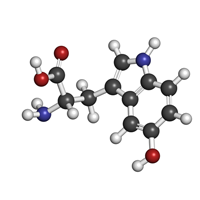 |
5-HTP (5-Hydroxytryptophan) 5-Hydroxytryptophan (5-HTP) is an amino acid that occurs naturally in the human body. Its primary use in the human body is as a precursor in the conversion of tryptophan. |
A
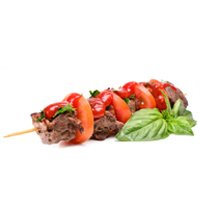 |
Acetyl L-Carnitine Acetyl-L-Carnitine occurs naturally in the body within the inner membrane of structurally related to acetylcholine, a neurotransmitter. |
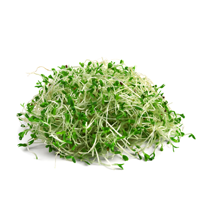 |
Alfalfa Alfalfa, known scientifically as Medicago sativa, is a flowering plant in the Fabaceae family, which includes peas. |
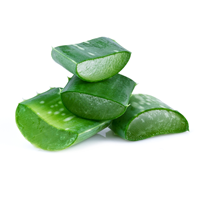 |
Aloe Vera Aloe vera is a species of plant with very short stems or no stems at all. It can exceed three feet in height and has thick leaves that are green or gray-green in color. |
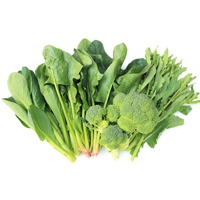 |
Alpha Lipoic Acid Alpha Lipoic Acid is an organosulfur compound that is biosynthesized by all animals. It is a cofactor in many enzymes and an essential component of aerobic metabolism. |
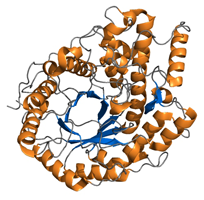 |
Amylase Amylase is a digestive enzyme that breaks down starch molecules into simple sugars. |
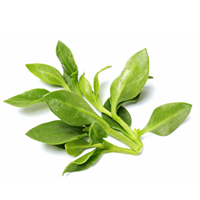 |
Andrographis Andrographis is a genus of plants in the acanthus family. The precise number of Andrographis species is difficult to establish, although estimates range from 19 to 44. |
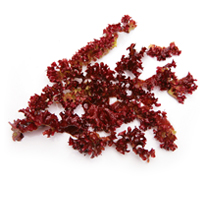 |
Astaxanthin Astaxanthin is a type of carotenoid known as a xanthophyll, which is a pigment that gives plants a red-pink color. |
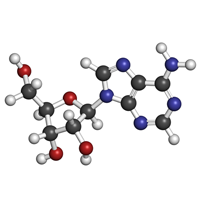 |
Adenosine triphosphate Adenosine triphosphate (ATP) is chemically classified as a nucleoside triphosphate. Its primary biological use is as a coenzyme. |
b
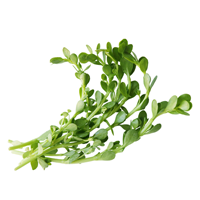 |
Bacopa Bacopa is a genus of up to 100 aquatic plants, with Bacopa monnieri being one its best known members. |
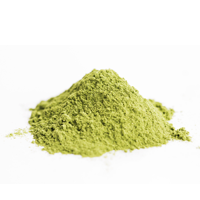 |
Barley Grass Barley is a species of grass known scientifically as Hordeum vulgare. It is typically cultivated as a cereal crop and is especially popular Tibetan cuisine. |
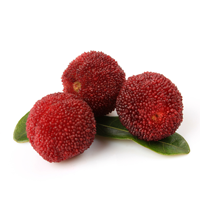 |
Bayberry (Myricetin) Myricetin is a naturally occurring flavonoid found in berries, fruits, vegetables, herbs, tea and wine. Many in vitro studies have demonstrated the antioxidant properties of Myricetin. |
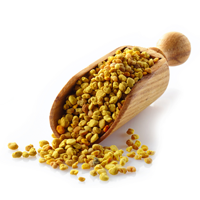 |
Bee Pollen Worker honeybees collect pollen from flowers, which they pack into pellets. They then add honey and other secretions to the pollen, forming a mixture commonly known as bee pollen or bee bread. |
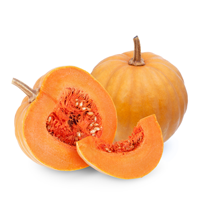 |
Beta Carotene Beta carotene is a red-orange pigment found in many plants. Its primary use in plants is to protect them from damage by excessive sunlight. |
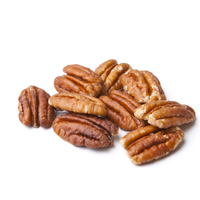 |
Beta-sitosterol Beta-sitosterol is a phytosterol, which is a sterol produced by plants. It is chemically similar to cholesterol, and the pure form is a waxy, white powder. |
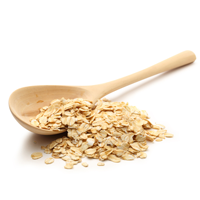 |
Beta-glucans Beta-glucans are complex sugars known as polysaccharides. They are composed of simple sugars called D-glucose monomers that are linked together by beta-glycosidic bonds. |
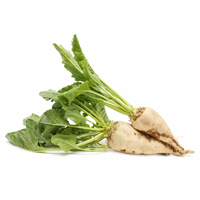 |
Betaine HCL Glycine betaine was first isolated from sugar beets in the 19th century. It was the first betaine discovered, although many other betaines have been discovered since then. |
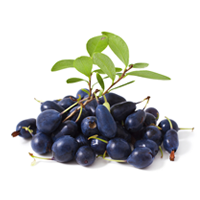 |
Bilberry Bilberry is the common name for several species of plants in the Vaccinium genus, especially V. myrtillus. They are low-growing shrubs that are closely related to blueberries and are often mistaken for blueberries. |
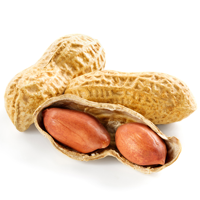 |
Biotin Biotin is a coenzyme that is also known by other common names such as coenzyme R, vitamin B7 and vitamin H. It has eight specific forms, but only D-biotin is completely biologically active in humans. |
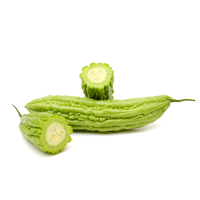 |
Bitter Melon The scientific name for bitter melon is Momordica charantia, which also has other common names such as balsam-pear, bitter gourd and bitter squash. |
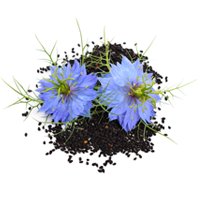 |
Black Cumin Black cumin is the common name for Nigella sativa, a flowering annual plant native to southern Asia. It can grow to one foot in height and has thin leaves with delicate flowers. |
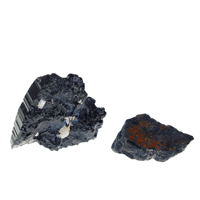 |
Boron Citrate A trace mineral that plays a role in the prevention of osteoporosis as it reduces calcium loss from bones. It is important in brain function and prostate health. |
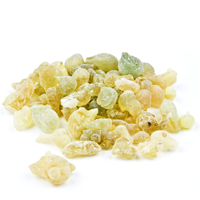 |
Boswellia The Boswellia genus of flowering trees contains four primary species, including B. frereana, B. papyrifera, B. sacra and B. serrata. |
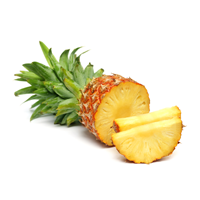 |
Bromelain Bromelain is an enzyme found in the Bromeliaceae family, which includes the pineapple plant. The term "bromelain" may also refer specifically to two enzymes in this extract rather than the entire extract. |
 |
Butcher's Broom Butcher's broom, known scientifically as Ruscus aculeatus, is a flowering plant that also has many other common names such as box holly, knee holly, kneeholm, jew's myrtle, pettigree and sweet broom. |
c
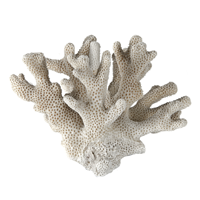 |
Calcium Carbonate Calcium Carbonate is found in many minerals, especially limestone, chalk and calcite. Calcium carbonate is also the primary component in the shells of many animals, especially mollusks. |
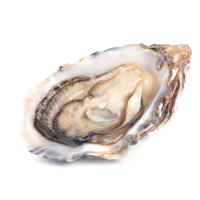 |
Calcium Oxide Calcium oxide is a chemical compound known as burnt lime or quicklime. It is a white crystalline powder at room temperature. |
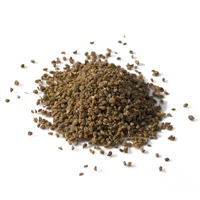 |
Celery Seed Celery Seed (Apium graveolens) is a member of the Apiaceae family, which also includes carrots and parsley. Celery plants can exceed three feet in height, and the leaves can grow to more than two inches in length. |
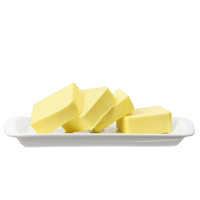 |
Cetyl Myristoleate (CMO) CMO is an abbreviation for cetyl myristoleate, more formally known as cis-9-cetyl myristoleate. It is chemically classified as an ester, meaning that it is the product of a reaction between an acid and alcohol. |
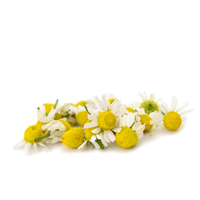 |
Chamomile Chamomile is a common name for the plant known scientifically as Matricaria chamomilla and Matricaria recutita. Additional common names for this plant include German chamomile, wild chamomile and scented mayweed. |
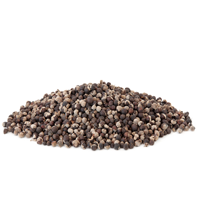 |
Chasteberry Chasteberry is a common name for Vitex agnus-castus, a species of flowering plant native to the Mediterranean region. It is also known by other common names such as Abraham’s Balm, Chaste Tree and Monk’s Pepper. |
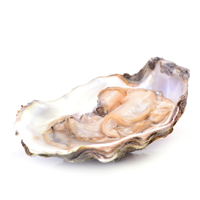 |
Chitin Chitin also has many applications as a health supplement that primarily relate to its role as a dietary fiber. Health supplements typically use chitosan, which is a modified form of chitin with greater bioavailability. |
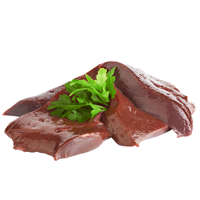 |
Choline Bitartrate Choline bitartrate is choline combined with a salt of tartaric acid. It has a much better absorption rate than pure choline, which is an essential human nutrient. |
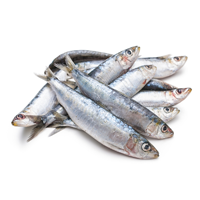 |
Chondroitin Sulfate Chondroitin sulfate is a chain of alternating molecules of glucuronic acid and N-acetylgalactosamine. This chain may contain over 100 molecules of simple sugars, although the specific quantities and positions can vary. |
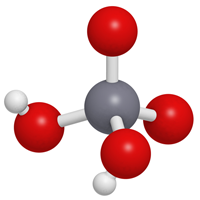 |
Chromium Picolinate This mineral is now being recognized as important in carbohydrate metabolism. Organic chromium is an active ingredient of a substance called GTF (glucose tolerance factor). |
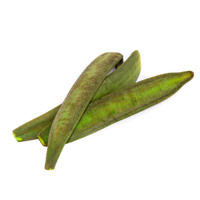 |
Chrysin Chrysin is a flavone, which is a class of plant pigment found in many flowering plants. The most significant natural sources of chrysin include flowers in the Passiflora genus, commonly known as passionflowers. |
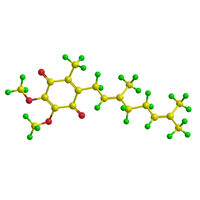 |
Coenzyme Q10 (CoQ10) Coenzyme Q10 (CoQ10) is an enzyme known chemically as a 1,4-benzoquinone. The “Q” in the name refers to the quinone chemical group, which are derived from aromatic compounds. |
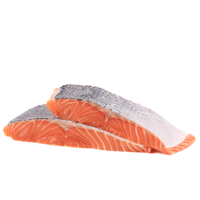 |
Collagen Collagen is the common name for many types of protein that fill the extracellular spaces in connective tissue. |
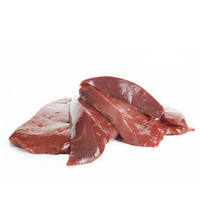 |
Copper Copper is a component of many proteins in the body, typically metalloenzymes. It is essential for a large number of specific metabolic functions, especially the growth and repair of various tissues. |
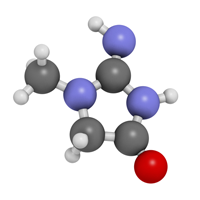 |
Creatine Monohydrate Creatine monohydrate is an organic acid with the chemical formula C4H9N3O2. It is also known by other names such as creatine, methylguanidoacetic acid and N-carbamimidoyl-N-methylglycine. |
d
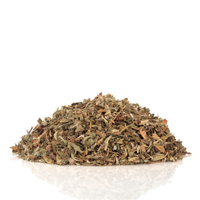 |
Damiana Damiana has a long history of use in herbal medicine, especially in Mexico. Damiana is primarily used as an aphrodisiac in traditional herbal medicine. |
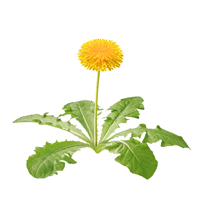 |
Dandelion Dandelion is a common name for any member of the Taraxacum genus, which contains many species. These flowering plants have deep roots and are native to temperate regions throughout the northern hemisphere. |
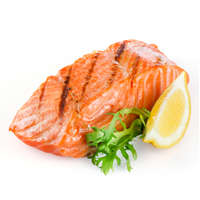 |
DHA Docosahexaenoic acid (DHA) is an omega-3 fatty acid that is also commonly known as cervonic acid. DHA is directly available through the diet, primarily from fish oil and breast milk. |
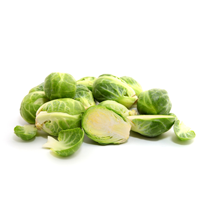 |
3,3′-diindolylmethane (DIM) DIM is an abbreviation for 3,3′-diindolylmethane, which is composed of a methane group with two indole groups attached to it. The primary natural source of DIM is the digestion of cruciferous vegetables. |
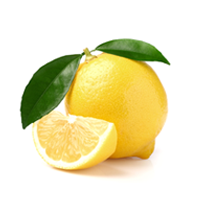 |
D-Limonene D-Limonene is a hydrocarbon chemically classified as a cyclic terpene. Its most common form, or isomer, is d-limonene, which is a colorless liquid at room temperature. |
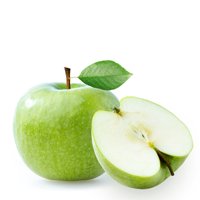 |
DL-Malic Acid Malic acid is a dicarboxylic acid with the chemical formula C4H6O5, which has two structures known as enantiomers. L-malic acid occurs naturally in all organisms, while D-malic acid must be synthesized in the laboratory. |
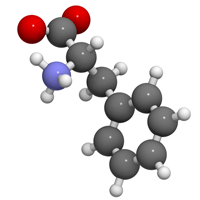 |
Phenylalanine Phenylalanine is an amino acid with the chemical formula C6H5CH2CH(NH2)COOH. It has two distinct forms known as enantiomers, including L-phenylalanine and D-phenylalanine. |
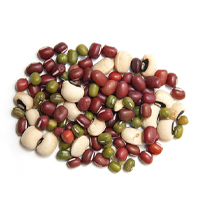 |
Dimethylglycine (DMG) DMG is an abbreviation for dimethylglycine, an amino acid with the chemical formula (CH3)2NCH2COOH. It is derived from glycine, which is one of the 20 amino acids commonly used to synthesize proteins in humans... |
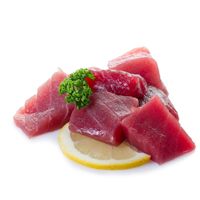 |
Docosapentaenoic acid (DPA) Docosapentaenoic acid (DPA) is an omega-3 fatty acid that is known
chemically as all-cis-4,7,10,13,16-docosapentaenoic acid... |
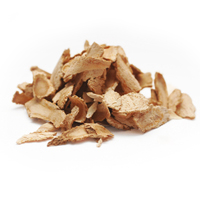 |
Dong Quai Dong quai is the common name for Angelica sinensis, an herb in the Apiaceae family. This family contains about 3,700 species, including carrots, celery and parsley. |
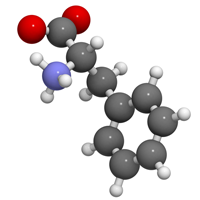 |
D-Phenylalanine Phenylalanine is an amino acid with the chemical formula C6H5CH2CH(NH2)COOH. It has two distinct forms known as enantiomers, including L-phenylalanine and D-phenylalanine. |
e
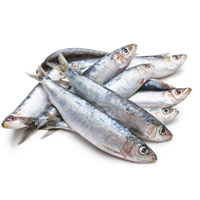 |
Eicosapentaenoic acid (EPA) Eicosapentaenoic acid (EPA) is an omega-3 fatty acid that is also known
as icosapentaenoic acid and timnodonic acid. |
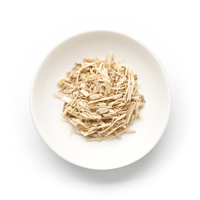 |
Eleuthero (Siberian Ginseng) Eleuthero is a common name for Eleutherococcus senticosus, a deciduous, woody shrub that originates from eastern Asia, including China, Japan, Korea and Russia. |
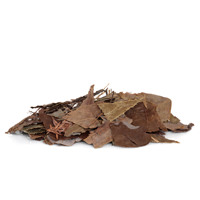 |
Epimedium Epimedium is a genus of flowering plants in the Berberidaceae family, commonly known as the barberry family. It contains over 60 species, and 15 are used in Traditional Chinese Medicine (TCM). |
f
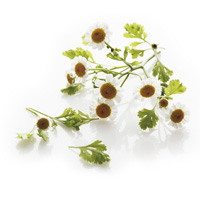 |
Feverfew Feverfew is the common name for Tanacetum parthenium, a small bush that grows to a height of about 18 inches. This plant is also known as Chrysanthemum parthenium and Pyrethrum parthenium. |
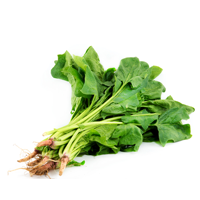 |
Folic Acid Folic acid is generally used to synthesize, repair and methylate DNA. It is also used to catalyze many biochemical reactions in the body. |
g
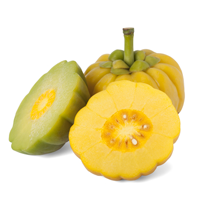 |
Garcinia Cambogia Garcinia Cambogia is also known as Malabar tamarind or Goroka fruit which is often used for culinary purposes in South East Asia. Recently, it has been used in supplements after the discovery of weight management properties. |
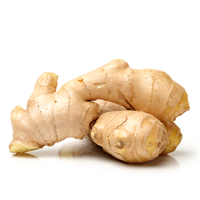 |
Ginger Roots Ginger is the common name for Zingiber officinale, a flowering plant in the Zingiberaceae family. Other plants in this family include cardamom, galangal and turmeric. |
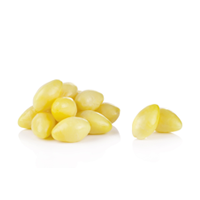 |
Ginkgo Biloba Ginkgo biloba is a tree that is commonly known as just ginkgo and the maidenhair tree. It is considered a living fossil since it is the only tree in its taxonomic division and its fossil record goes back 270 million years. |
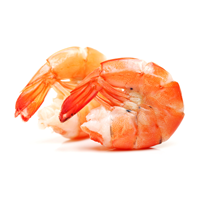 |
Glucosamine Glucosamine is a major component of joint cartilage and is also found in the synovial fluid around our joints. It plays a vital role in supporting support cartilage and joint function. |
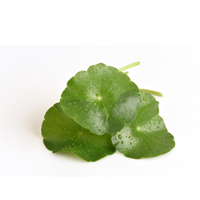 |
Gotu Kola Gotu Kola is used for reducing fatigue, improving memory, venous insufficiency including varicose veins, circulation, wound healing and increasing longevity. Gotu Kola is also used for memory loss and as an aphrodisiac. |
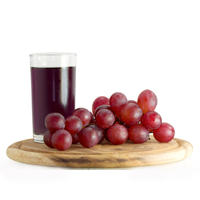 |
Grape Juice Powder Grape juice has been used in herbal medicine for centuries, especially in the Mediterranean region. Resveratrol is a natural phenol concentrated in grape skins that has strong antioxidant properties. |
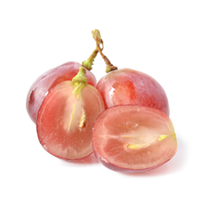 |
Grape Seed Extract The most common use of grape seed extract is support for the cardiovascular system. It is also useful for maintaining digestive health, age-related conditions and eye health. |
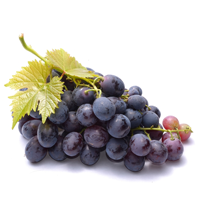 |
Red Grape Skin Extract Red grape skin extract is very high in resveratrol, which accounts for many of its health benefits. These benefits include supporting heart health, antioxidant support and the body’s ability to manage healthy blood sugar levels. |
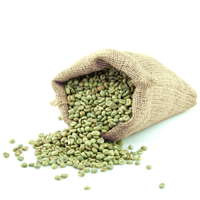 |
Green Coffee Bean Extract Coffee has been used in health for centuries due to its stimulating properties, but recent research on the green coffee bean and its chlorogenic acids has resulted in this ingredient being used for weight management. |
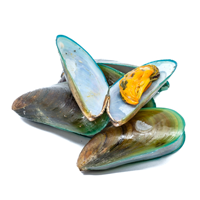 |
Green Lipped Mussels The New Zealand green-lipped mussel is scientifically known as Perna canaliculus. It also has common names such as the New Zealand mussel, the green-lipped mussel and the greenshell mussel. |
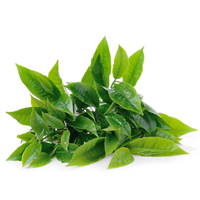 |
Green Tea Extract Green tea extract is derived from the green leaves of the tea plant, scientifically known as Camellia sinensis. It has been an essential herb in traditional medicine for centuries. |
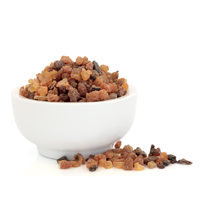 |
Guggulipid Mukul Gum Commiphora wightii is a flowering plant in the Burseraceae family, which is commonly known as the Torchwood family. Common names for Commiphora wightii include Mukul myrrh, guggul and Indian bdellium-tree. |
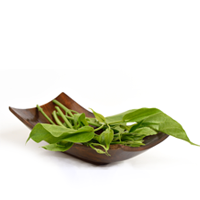 |
Gymnema Sylvestre Extract Gymnema is a genus of flowering plants in the Apocynaceae family that contains about 120 species. Gymnema sylvestre is one of the most well-known species in this genus. |
h
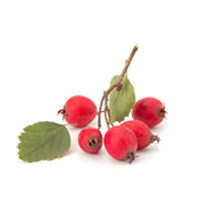 |
Hawthorn Berry Extract Hawthorn is the common name for any member of the Crataegus genus of shrubs and trees. They belong to the rose family and are native to temperate regions in the Northern Hemisphere. |
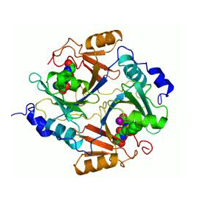 |
Hemicellulase Cellulase is a collective term for enzymes that break down cellulose, which is a polysaccharide, or complex sugar. |
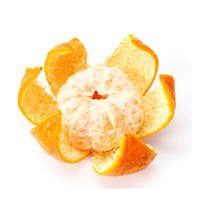 |
Hesperidin Hesperidin is a chemical that is primarily found in the Rutaceae family of citrus fruits. Its most abundant source is the bitter orange, known scientifically as Citrus aurantium. |
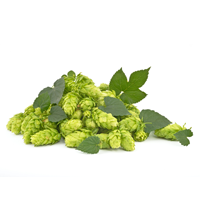 |
Hop Flakes Hops are used for restlessness, anxiety, sleep disorders, tension, excitability, attention deficit-hyperactivity disorder (ADHD). |
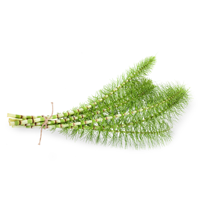 |
Horsetail The most significant health benefits of horsetail extract are generally due to its high silica content, a compound that is based on silicon. |
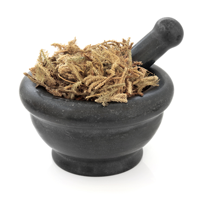 |
Huperzine A Huperzine A is an alkaloid derived from Huperzia, a type of moss that grows in China. It is used for age-related cognitive decline and Alzheimer's disease. |
i
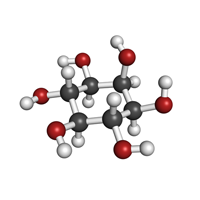 |
Inositol Inositol, known chemically as cyclohexane-1,2,3,4,5,6-hexol, has the chemical formula. The most common of inositol's nine forms, or stereoisomers. in nature is cis-1,2,3,5-trans-4,6-cyclohexanehexol. |
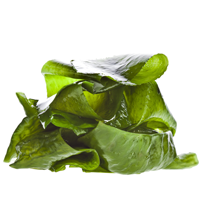 |
Iodine Iodine is a trace mineral, most of which is converted into iodide in the body. It aids in the development and functioning of the thyroid gland and is an integral part of thyroxin. |
j (N/A for now)
k
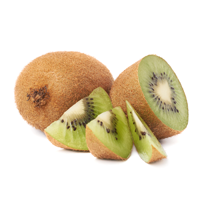 |
Kiwifruit Extract The kiwifruit, known scientifically as Actinidia deliciosa, is a woody vine that is also known by other common names such as kiwi, fuzzy kiwifruit, and Chinese gooseberry. |
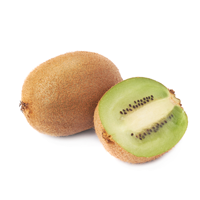 |
Kiwifruit Powder Kiwifruit originates from China, although its commercial cultivation didn’t begin until the early 20th century in New Zealand. |
l
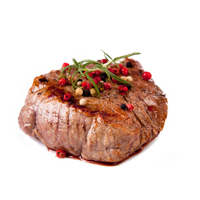 |
L-Arginine HCL The L-form of arginine is one of the 20 amino acids that are commonly found in nature. It is classified as a conditionally essential amino acid, meaning that the human body can’t manufacture sufficient quantities. |
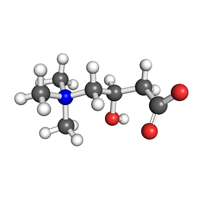 |
L-Carnitine L-Carnitine is an ammonium compound that's synthesized from the amino acids methionine and lysine, primarily in the liver and kidneys. Plant and animal cells use it to transport fatty acids into the mitochondria to metabolize fats. |
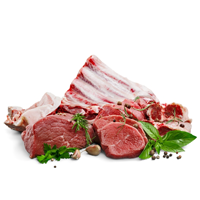 |
L-Carnosine Carnosine is known scientifically as beta-alanyl-L-histidine. It is composed of one molecule each of the amino acids histidine and beta-alanine, and is therefore known chemically as a dipeptide. |
 |
L-Cysteine L-cysteine is an amino acid that is classified as semi-essential in humans, meaning that the body biosynthesizes adequate amounts of it under normal circumstances. The biosynthesis of L-cysteine requires methionine. |
 |
L-Glutamine L-Glutamine is one of the 20 basic amino acids in the human genetic code. It's a conditionally essential amino acid, meaning that dietary supplementation of L-glutamine may be required under certain conditions. |
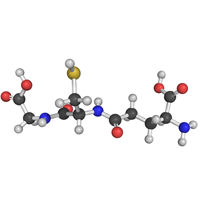 |
L-Glutathione Glutathione is a tripeptide, which is a molecule consisting of three amino acids linked together by chemical bonds. It is an important nutrient in many organisms, including plants, animals and some bacteria. |
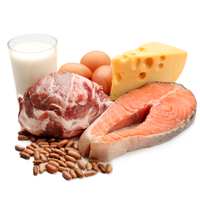 |
L-Histidine Histidine is one of the 23 amino acids used to build proteins in humans, known chemically as proteinogenic amino acids. It uses the codons cytosine-adenine-uracil (CAU) and cytosine-adenine-cytosine (CAC). |
 |
L-Histidine HCL L-histidine is an essential amino acid, meaning that it must be obtained through dietary sources. It is also one of the 23 proteinogenic amino acids, which are used to synthesize proteins. |
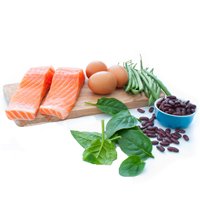 |
L-Lysine L-lysine is an essential amino acid for humans, meaning that the body can't synthesize it. It must therefore be obtained in the diet, typically in the form of proteins that contain lysine. |
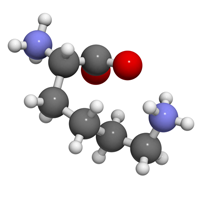 |
L-Lysine-HCL Lysine is an essential amino acid, meaning that it is not able be synthesized in the body. The most common use of L-lysine HCL in dietary supplementation is to aid with the natural recovery of sores. |
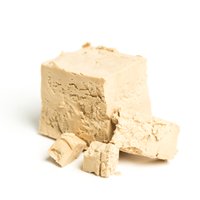 |
L-Inosine Inosine is a nucleoside, which is one of the basic chemicals used to construct cells. L-inosine is the biologically active form, which has the chemical formula 1,9-dihydro-9-beta-D-ribofuranosyl-6H-purin-6-one. |
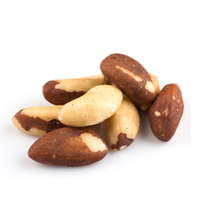 |
L-Methionine L-methionine is an essential amino acid in all multi-celled animals. It must be obtained from diet and food sources since it is unable to be biosynthesized in the body. |
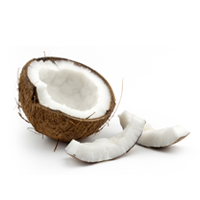 |
L-Ornithine HCL L-ornithine is an amino acid that’s primarily used in the urea cycle, which eliminates excess nitrogen from the body. It isn’t an essential amino acid in humans, meaning that it can be synthesized in the body. |
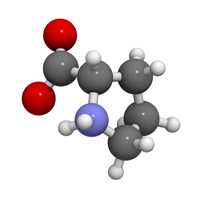 |
L-Proline L-proline is one of the 20 amino acids that are used to synthesize proteins by the human body. This amino acid is encoded in the human genetic code with the codons CCA, CCC, CCG and CCU. |
 |
L-Pyroglutamic acid Pyroglutamic acid is a derivative of the amino acids glutamine and glutamic acid. It also known by other names such as pyroglutamate, 5-oxoproline and pidolic acid. |
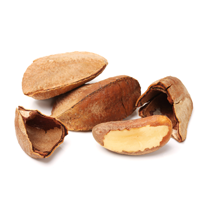 |
L-Selenomethionine Selenomethionine is an amino acid that contains selenium. It exists in two forms known as enantiomers, including L-selenomethionine and D-selenomethionine. |
m
n
o
p
q
r
s
t
u
v
w
x
y
z
Return to XtendHealthAsia.com Home Page from Xtend-Life Raw Ingredients And Their Benefits
Where to next?
- First time here or buying health supplements? It can be daunting and overwhelming - I created a start here page that may help guide you for your health needs. You can also see/read what I personally take.
- Read all my Xtend-Life Product Reviews here
- Looking for a specific ingredient or list of ingredients? Visit the the Xtend-Life certified ingredients page here
- Read and share testimonials and experiences you had with Xtend-Life health supplements, skin care products and customer service. Or if you have questions or comments on how Xtend-Life can help you boost your health, fitness, wellness and skin, visit: Your Questions page.
- Follow up on updates, news and articles on the blog or visit our videos page where I create and upload relevant videos for you.
- Find out about Xtend-Life Loyalty Program here, to enjoy discounts and special offers.
- Contact us at Xtend Health Asia
products that i've been using since 2014
Here are the Xtend Life health supplements that I personally use since 2014 and reviewed that I know will improve your health results.
Total Balance Men's Premium (review here)
Omega 3 Fish Oil QH Ultra (review here)
Kiwi Klenz (review here)
Garcinia Cambogia + Green Coffee Bean
Lipi Rite (review here)
Natural Energy Bee Pollen (review here)
See all the Xtend Life Supplements Nigel Take
ALL XTEND-LIFE PRODUCTS
Green Lipped Mussel Powder (read review)
Joints & anti inflammation
Neuro Natural Recall (read review)
Brain & memory booster
Neuro Natural Serenity (read review)
Brain & mood booster
Neuro Natural Sleep (read review)
Improves sleep quality
Neuro Natural General (read review)
Brain & memory booster
Male Rejuvenator (read review)
Aids sex & prostate health
Female Rejuvenator (read review)
Boosts female sexual health
Natural Energy with NZ Bee Pollen (read review)
Ups energy & alertness
Kiwi-Klenz (read review)
Aids nutrient absorption & digestive health
Immu-Stay (read review)
Boosts immunity defence
Lipi-Rite (read review)
Manage high cholesterol
Not Just Joints (read review)
Joints & arthritis support
Systemic Care (read review)
Diabetes health support
Bone-Support (read review)
Aids bone strength & health
Cardio-Support (read review)
Boosts heart health
Garcinia Cambogia & Green Coffee Bean (read review)
Weight loss supplement
Zupafood Elite (read review)
Libido, immunity & energy
Zupafood Greenz (read review)
Detox, immunity & liver
Zupafood for Skin (read review)
Glutathione, marine collagen & elastin
Prostate-Support (read review)
Prostate & sexual health, better sleep
Men's Foaming Facial Cleanser (read review)
With natural Kiwifruit & Manuka Honey
Men's Exfoliating Scrub (read review)
Removes dead skin cells & refine pores
Men's Facial Fluid (read more)
Repairs, restores & soothes
Men's Eye Serum (read review)
Energizes, hydrates & firms tired eyes
Men's Body Lotion (read review)
Moisturizes & improves skin elasticity
Men's Hydrating Mask (read review)
Invigorates & deep hydration
Men's Cleansing Mask (read review)
Purge impurities & refines skin
Women's Nourishing Hand Cream (read review)
Protects, moisturizes & soothes skin
Women's Exfoliating Scrub (read review)
Refines & renews skin
Women's Day Cream (review here)
Moisturizing & anti aging
Women's Day Cream + Natural Whitening (read review)
Whitens, reduces fine lines & reduces wrinkles
Women's Night Cream (read review)
Omega 3 & 6 anti oxidant skin renewing moisturizer
Women's Sheer Day And Night Cream (read review)
Softens, anti wrinkle & hydrates
Women's Eye Serum (read review)
Energizes, firms and hydrates tired eyes
Women's Body Lotion (read review)
Soothes, anti oxidant & hydration
Women's Hydrating Mask (read review)
Invigorates & hydrates
Women's Cleansing Mask (read review)
Renews, supports & invigorates skin
Women's Foaming Facial Cleanser (read review)
With natural Kiwifruit & Manuka Honey
Total Balance Men's Premium (read review)
Comprehensive cellular multi vitamins
Total Balance Women's Premium (read review)
Comprehensive cellular multi vitamins
Total Balance Unisex Premium (read review)
Comprehensive cellular multi vitamins
Total Balance Children's (read review)
For healthy development, immunity & learning
Multi-Xtra (read review)
48 bio available nutrients for cellular health
Omega 3 DHA Fish Oil Premium (read review)
Helps mood, heart, cholesterol & sleep
Omega 3 DHA Fish Oil (read review)
Aids joints, heart, cholesterol & sleep
Omega 3 / QH Ultra CoQ10-Ubiquinol (read review)
Cardiovascular health, anti cholesterol & energy
Omega 3 / DHA Mini (read review)
Easier for children to swallow; aids brain, memory & learning












